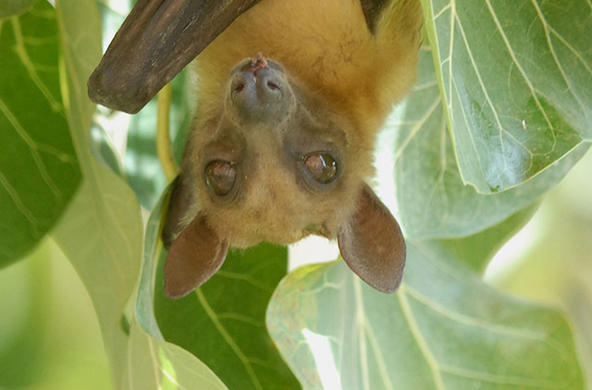A team of scientists have found preliminary evidence that 11 different species of bats found in India are potential carriers of the deadly Nipah virus, that killed 17 people in Kerala last year. Until now, the virus was confirmed only in the Indian flying fox (Pteropus medius), a fruit bat species found across south Asia and treated as a major disease vector.
The study, which was published on Friday in the PLoS Neglected Tropical Diseases journal, aims to identify bat species with the potential to host the virus amid the occurrence of the outbreak, twice in two years, in Kerala.
Out of an estimated 113 bat species in India, 31 of them were sampled, out of which 11 were found to have antibodies, signalling host potential for the virus.
Data on the species’ foraging methods, diet, migration behaviours, geographic ranges and reproduction were compiled by the team along with environmental conditions. Subsequently, a trait-based machine learning approach to a subset of species occurring in Asia, Australia and Oceania was applied. The algorithms were met with 83% accuracy.
The scientists note that the predictions must be combined with local knowledge on bat ecology in order to design sampling plans that can identify potential bat vector species.
The team of scientists were led by Raina Plowright, a disease ecologist at the Montana State University and Barbara Han of the Cary Institute of Ecosystem studies in Milbrook in the United States. A scientist from Kerala – PO Nameer with the Centre for Wildlife Studies at the Kerala Agricultural University – was also in the team.
Nameer hailed the study results as an important breakthrough. At the same time, he stressed that the sampling for the study, which was done based on literature, has to be conducted within India using PCR (Polymerase chain reaction) evidence.
“In India, we have not done sampling until now. These species, found to be potential carriers of the virus, are found in India. So we propose a detailed study by collecting samples from within India too,” said Nameer over phone.
“Also, though the presence of Nipah virus has been cited from species other than Pteropus we should also note that the PCR evidence has been collected only from Pteropus. From other species, we have only got serological evidence which is not as conclusive as that of PCR. We need to do detailed monitoring in India,” he added.
Identification of the bat species, with the potential to host the virus, can help in strengthening surveillance methods and public health systems, especially in a state like Kerala, which has grappled with the outbreak twice in two years.
“By looking at the traits of bat species known to carry Nipah globally, our model was able to make predictions about additional bat species residing in India with the potential to carry the virus and transmit it to people. These bats are currently not on the public health radar and are worthy of additional study,” said Han in a statement.






